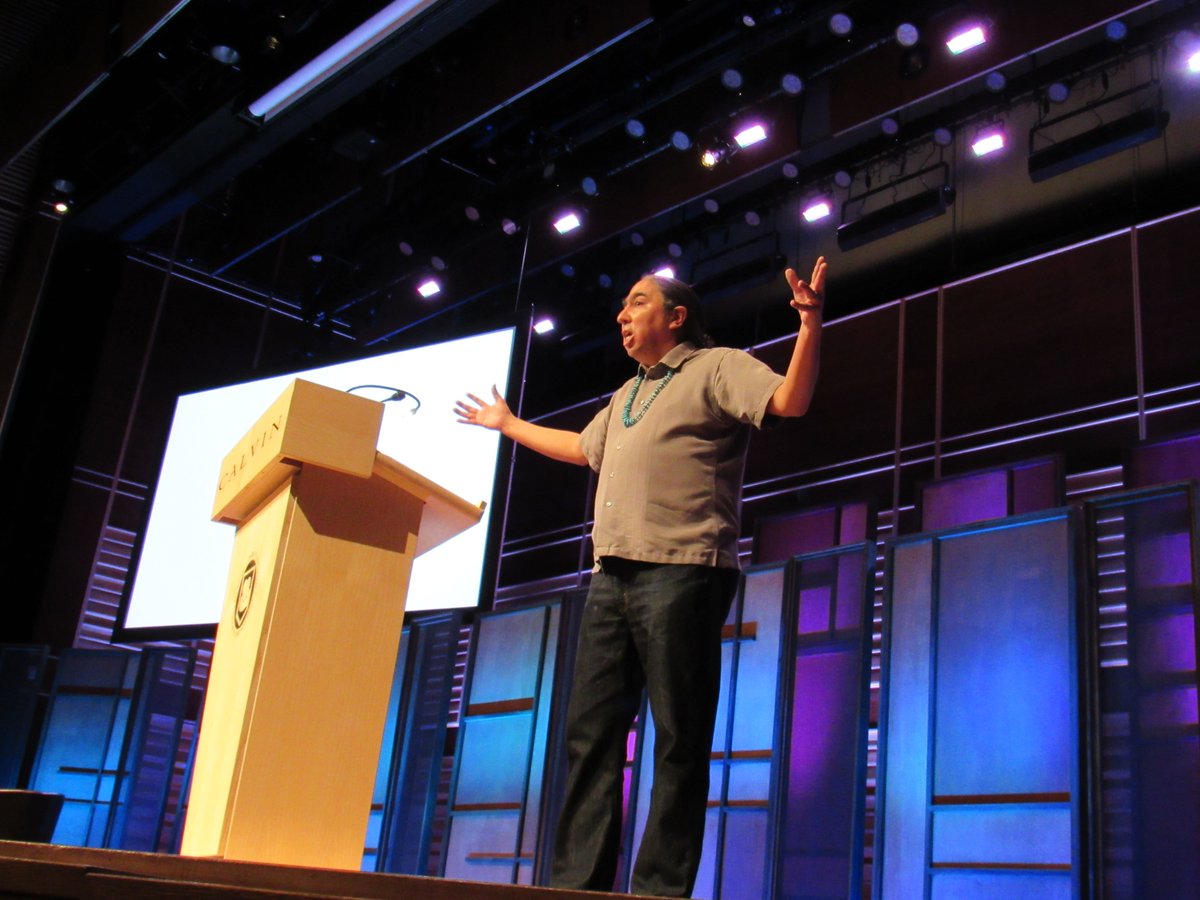“Race, Trauma and the Doctrine of Discovery”
Calvin senior Nelson Bates opened Jan. 6’s session in a language unfamiliar to most attendees but incredibly familiar to the day’s speaker. Bates introduced himself in the traditional language of the Navajo people, identifying himself by his family’s clans.
When speaker, consultant and writer Mark Charles took the podium, he greeted his audience in the same fashion, mentioning the clan names of his father’s mother and father: the Waters that Flow Together clan and the Bitter Water clan. But to describe the clans of his Dutch-American mother, Charles utilizes another phrase: the Wooden Shoe People.
The speaker, drawing upon this unique heritage, encouraged his audience to confront “things we as a nation and as a church don’t know how to talk about.”
The basis of this uncertainty, Charles argues, results from an unwillingness to confront church and world history. Beginning with the reign of the emperor Constantine, Christians began to dangerously mix the goals of church and empire, justifying conquest as the removal of infidels from the Promised Land.
This dehumanizing “Doctrine of Discovery” trickled into the formation of the United States, creating a contradiction at the core of Declaration of Independence. Just a few lines below “all men are created equal,” Jefferson refers to “the merciless Indian savages.” Not all people count as “we the people”: just white land-owning men.
“We don’t teach history; we teach a mythology,” Charles said. America prefers to focus on its own exceptionalism and ignore the horrors of the Indian Removal Act, the Sand Creek Massacre and Indian boarding schools.
Charles identified this history as trauma, not only for its victims (native people, communities of color), but also for white America.
“[This country] needs to have a national dialogue on race,” Charles said. So, too, does the church — even the Christian Reformed Church, whose “focal point of trauma” has been the Navajo mission and denominational boarding school in Rehoboth, New Mexico.
“We have to find a way to deal about the truth of our history so that we can move forward to create a better community.”








